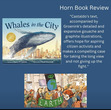Researching STEM - Welcome Guest Blogger Melissa Stewart
Delightfully Disgusting Research
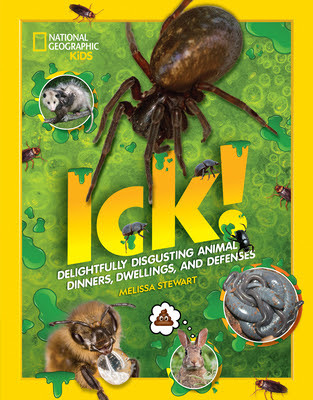
The story behind my upcoming book Ick! Delightfully Disgusting Animal Dinners, Dwellings, and Defenses ) traces back to a three-week research trip I took to Africa in 1996. During the safari, I watched with fascination as a mother black-backed jackal upchucked her partially-digested dinner to feed her three feisty pups. When the little ones had eaten their fill, she scarfed down the mushy leftovers.
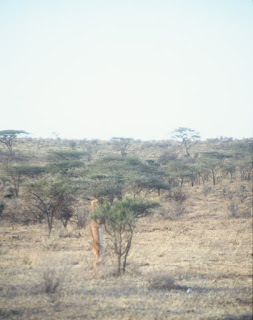
The next day, while observing a gerenuk standing on its tippy-toes as it ate, our guide told us that it’s one of more than 150 mammals (including cows) that regurgitate their food and re-munch their lunch as many as four times. It’s their way of eking every possible nutrient from the tough plants they eat.
Right then and there, I started making a list of animals that vomit their vittles as a survival strategy. Over time, I added more than a dozen insects, birds, and mammals to that list.
But why stop there? I also made lists of creatures that use poop, pee, spit, snot, and other bodily substances in the most surprising ways. Eventually, I had more than enough information for a 100-page book.
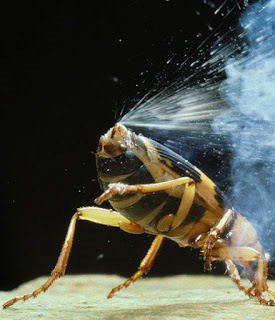 Photo: Satoshi Kuribayashi/Nature Production/Minden Pictures
Photo: Satoshi Kuribayashi/Nature Production/Minden Pictures
One of my favorite examples is the bombardier beetle—an insect that blasts enemies with a scalding spray that bursts out its butt. I observed the insect in action during a class I took at Cornell University in Ithaca, New York, many years ago.
In March 2018, an article in Science News led me to an amazing video of a Japanese common toad vomiting an African bombardier beetle drenched with gooey mucus. For 88 minutes, the tenacious insect fought for its life by blasting the toad’s insides with nasty, sizzling-hot spray.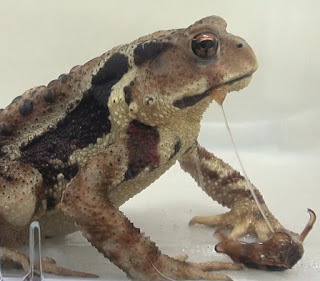 Photo: Shinji SugiuraFinally, the toad couldn’t take it anymore and spewed its supper. After a brief rest, the slime-covered beetle slowly crawled away.
Photo: Shinji SugiuraFinally, the toad couldn’t take it anymore and spewed its supper. After a brief rest, the slime-covered beetle slowly crawled away.
You know you’ve chosen one of the world’s best professions when watching something so weird and wonderful is a legitimate part of your job!
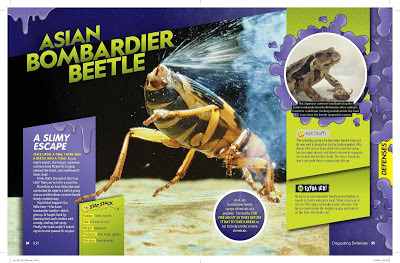 Available in June 2020 wherever books are sold.
Available in June 2020 wherever books are sold.
Observational research—whether it’s in person, through videos, or via webcams—is one of my favorite parts of being a nonfiction writer. It’s also one of the best ways I know to gather tantalizing tidbits that can transform a piece of science writing from okay to outstanding.
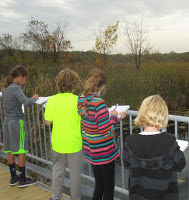
And the good news is that young writers can do this kind of active, engaging, self-driven research just as easily as I can. Why not let them give it a try?
Melissa Stewart is the award-winning author of more than 180 nonfiction books for young readers, including Ick! Delightfully Disgusting Animal Dinners, Dwellings, and Defenses, Seashells: More than a Home, and Pipsqueaks, Slowpokes and Stinkers: Celebrating Animal Underdogs. She maintains the Celebrate Science blog and serves on the Society of Children’s Book Writers and Illustrators board of advisors. Melissa’s highly-regarded website features a rich array of nonfiction writing resources. www.melissa-stewart.com
---------------------------------------------------------------------------------------------------------------------
Nancy Castaldo has been writing about the planet for over 20 years. Learn more about her award-winning books at http://www.nancycastaldo.com Purchase and pre-order autographed copies of Nancy's books here.
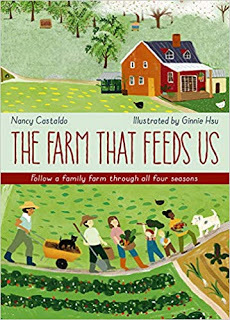 Coming May 2020!
Coming May 2020!

The story behind my upcoming book Ick! Delightfully Disgusting Animal Dinners, Dwellings, and Defenses ) traces back to a three-week research trip I took to Africa in 1996. During the safari, I watched with fascination as a mother black-backed jackal upchucked her partially-digested dinner to feed her three feisty pups. When the little ones had eaten their fill, she scarfed down the mushy leftovers.

The next day, while observing a gerenuk standing on its tippy-toes as it ate, our guide told us that it’s one of more than 150 mammals (including cows) that regurgitate their food and re-munch their lunch as many as four times. It’s their way of eking every possible nutrient from the tough plants they eat.
Right then and there, I started making a list of animals that vomit their vittles as a survival strategy. Over time, I added more than a dozen insects, birds, and mammals to that list.
But why stop there? I also made lists of creatures that use poop, pee, spit, snot, and other bodily substances in the most surprising ways. Eventually, I had more than enough information for a 100-page book.
 Photo: Satoshi Kuribayashi/Nature Production/Minden Pictures
Photo: Satoshi Kuribayashi/Nature Production/Minden PicturesOne of my favorite examples is the bombardier beetle—an insect that blasts enemies with a scalding spray that bursts out its butt. I observed the insect in action during a class I took at Cornell University in Ithaca, New York, many years ago.
In March 2018, an article in Science News led me to an amazing video of a Japanese common toad vomiting an African bombardier beetle drenched with gooey mucus. For 88 minutes, the tenacious insect fought for its life by blasting the toad’s insides with nasty, sizzling-hot spray.
 Photo: Shinji SugiuraFinally, the toad couldn’t take it anymore and spewed its supper. After a brief rest, the slime-covered beetle slowly crawled away.
Photo: Shinji SugiuraFinally, the toad couldn’t take it anymore and spewed its supper. After a brief rest, the slime-covered beetle slowly crawled away.You know you’ve chosen one of the world’s best professions when watching something so weird and wonderful is a legitimate part of your job!
 Available in June 2020 wherever books are sold.
Available in June 2020 wherever books are sold.Observational research—whether it’s in person, through videos, or via webcams—is one of my favorite parts of being a nonfiction writer. It’s also one of the best ways I know to gather tantalizing tidbits that can transform a piece of science writing from okay to outstanding.

And the good news is that young writers can do this kind of active, engaging, self-driven research just as easily as I can. Why not let them give it a try?
Melissa Stewart is the award-winning author of more than 180 nonfiction books for young readers, including Ick! Delightfully Disgusting Animal Dinners, Dwellings, and Defenses, Seashells: More than a Home, and Pipsqueaks, Slowpokes and Stinkers: Celebrating Animal Underdogs. She maintains the Celebrate Science blog and serves on the Society of Children’s Book Writers and Illustrators board of advisors. Melissa’s highly-regarded website features a rich array of nonfiction writing resources. www.melissa-stewart.com
---------------------------------------------------------------------------------------------------------------------
Nancy Castaldo has been writing about the planet for over 20 years. Learn more about her award-winning books at http://www.nancycastaldo.com Purchase and pre-order autographed copies of Nancy's books here.
 Coming May 2020!
Coming May 2020!
Published on January 15, 2020 04:00
No comments have been added yet.

